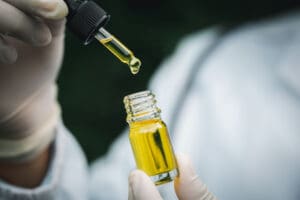(Update) For the latest and most robust blog on this topic check out: Cannabis and Psychosis – What you should know
Cannabis induced psychosis is a volatile topic on the internet with many divisive opinions about the subject. One argument that has been gaining momentum on social media platforms claim that cannabis induced psychosis is fictional and just an excuse to limit cannabis access to the public. Social media can influence many people’s perspectives, therefore it’s important to evaluate the evidence in an unbiased way to ensure the information is accurate.
I personally have extensive experience in this area because I’m a psychiatric pharmacist that works in the emergency department of one of the largest mental health hospitals in North America. I will be using my experience along with clinical data to provide some background on this issue.
Psychosis is a condition that some people experience based on how their brain processes information. It can cause delusions, paranoia, visual or auditory hallucinations. This can be induced by a mental illness, substance use, extreme stress or trauma.
The big debate is whether THC (Tetrahydrocannabinol) in cannabis can cause psychosis. However, among healthcare professionals there is no question, cannabis induced psychosis is real. A small portion of cannabis users are susceptible to psychosis and often need to be brought in to the hospital by family members or police due to their intense paranoia, hallucinations or delusions.
Cannabis induced psychosis is treated like any other substance induced psychosis:
- Antipsychotics are provided to manage psychosis.
- The patient stays in hospital until the cannabis clears from their system and the delusions subside.
- The patient is discharged.
What can complicate treatment is if the patient already has a psychiatric condition that causes psychosis, like schizophrenia. In these situations, the THC can drastically worsen the patient’s psychotic symptoms to a point where a lengthier hospital admission is required as it can take longer for these patients to return to baseline.
For patients who are susceptible to cannabis induced psychosis, avoiding THC consumption is the best course of action. Patients with a family history of psychiatric conditions such as bipolar disorder and schizophrenia are more likely to experience psychosis from cannabis and should avoid its use. CBD (cannabidiol) only products such as hemp, CBD oils and CBD tinctures are better options to avoid the psychoactive component in cannabis. Interestingly, there is some research that suggests CBD may actually help treat psychosis. However there is not enough data to unequivocally prove this; much more research must be done to verify this.
Bottom line, most cannabis users won’t experience cannabis induced psychosis. However, the few that are susceptible should avoid THC consumption. More research needs to be done to understand cannabis induced psychosis and to prevent the spread of misinformation on the Internet.


